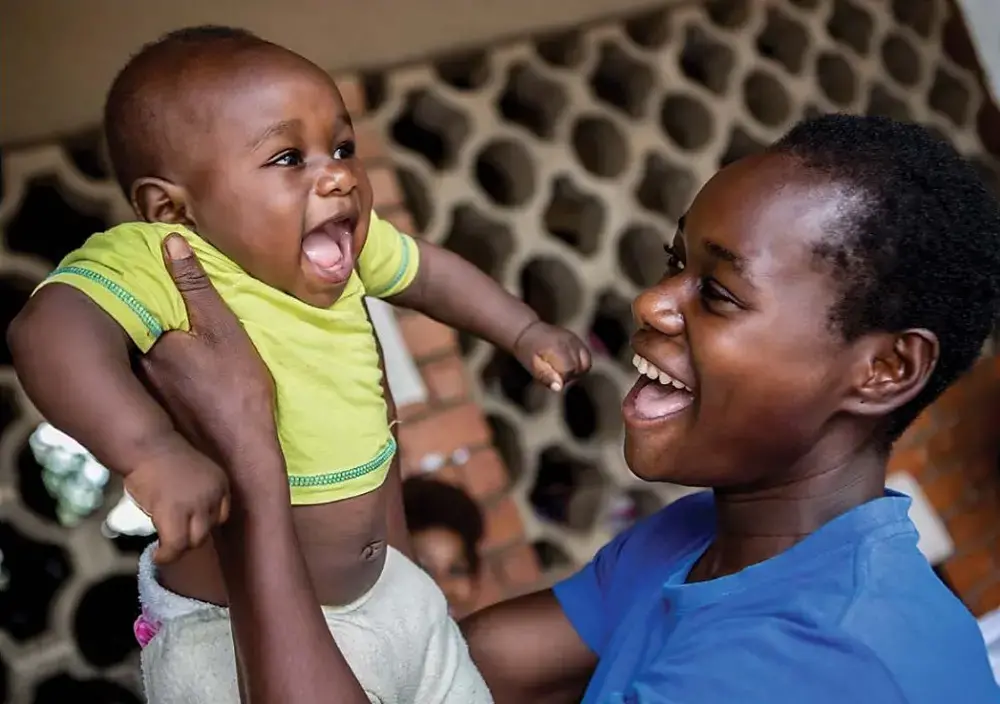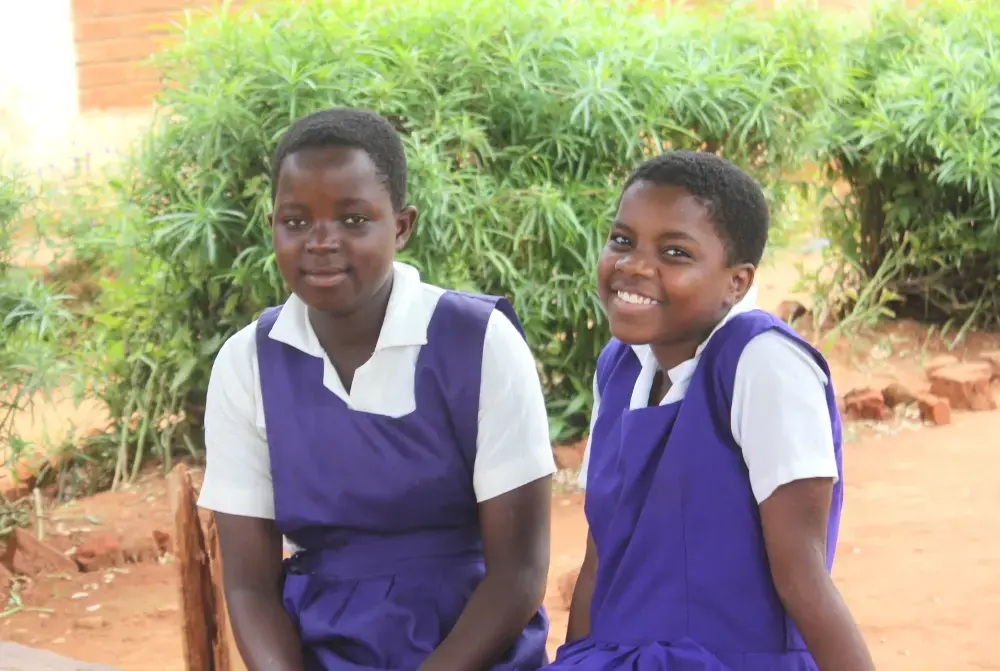MTENDERE, Zambia – As a high school student, Christabel Mwewa had always been ambitious and sociable. She loved to learn, particularly history, and had an affinity for making friends. Everything changed when, at age 16, she learned she was pregnant. Suddenly the studious teenager felt stigmatized. It was as though no one saw a future for her anymore.
“After I found out I was pregnant, the people in my community thought that I just dropped out of school, and started spreading rumours saying that because I have a child now I won’t go back to school,” she said.
After I found out I was pregnant, the people in my community thought that I just dropped out of school, and started spreading rumours.
Her situation is all too common in Zambia, which has one of the highest adolescent pregnancy rates in the world. Pregnant teens often do drop out of school, and they can be subjected to harmful practices such as child marriage, as their future prospects dwindle.
But Christabel was fortunate – with UNFPA's support she was able to return to school after having her baby. While excited to rejoin her fellow students, she was also anxious and uncomfortable about how she would be seen by her teachers and peers.
“I thought people would look down on me for having a baby,” Christabel said.
But she persevered. Now 18, Christabel is still in school and dreams of practising law in order to help others and support her child’s education.
And she is no longer worried about another unintended pregnancy complicating those plans. With support from the UNFPA Supplies Partnership, the flagship family planning programme of UNFPA, Christabel was able to access a long-acting contraceptive method to ensure that another unplanned pregnancy does not sideline her goals.
Christabel Mwewa from Zambia shares the story of her pregnancy at age 16.
An unprecedented shortfall
The UNFPA Supplies Partnership is the only United Nations programme dedicated to family planning, and it is the world’s largest provider of donated contraceptives. But these efforts are currently at risk. COVID-19 has led to shrinking fiscal space for reproductive health. More than a third of countries have pandemic-related disruptions in family planning, reproductive health, nutrition and pregnancy-related care.
According to estimates from UNFPA and partners, some 12 million women and adolescent girls lost access to family planning services in 2020, leading to 1.4 million unintended pregnancies. The loss of access to contraceptive products and services and supply chain disruptions are still ongoing in 2021 as countries struggle to contain new outbreaks.
Amid these challenges, the UNFPA Supplies Partnership is facing an unprecedented funding shortfall of $150 million for 2021-2022.
Emergency funding
There is a great deal at stake. To ensure women and girls can continue to get the contraceptives and other reproductive health medicines they need right now, the Bill & Melinda Gates Foundation, the Children’s Investment Fund Foundation, and another private donor have announced up to $50 million in emergency stop-gap funding to the UNFPA Supplies Partnership.
I am glad that I have control over when I can have children because I can finish my education and find a job.
This funding is a one-time investment to mitigate the immediate budget shortfall for 2022, but long-term support is still needed.
If fully funded for the upcoming four years (2022–2025), the UNFPA Supplies programme can also strengthen health systems to reduce unmet need in family planning, which would help prevent around 1.1 million maternal and child deaths, 53 million unintended pregnancies and 1.7 million unsafe abortions, according to estimates.
A fully funded UNFPA Supplies Partnership means Christabel – and many in similar circumstances – will never have to wonder if her method of choice will be available when she needs it.
“I am glad that I have control over when I can have children because I can finish my education and find a job. And whatever my child needs, I'll be able to provide for her,” she told UNFPA.





